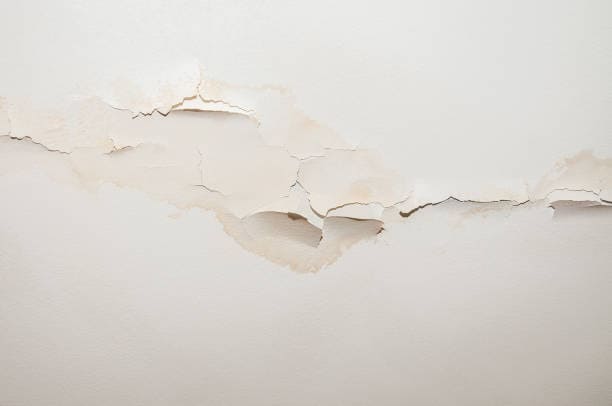There’s a lot of information out there about how to deal with water damage effectively, how much it costs to fix, what to do about it, and more. A lot of this kind of information is on our blog! But none of that is useful without understanding what is water damage exactly. That’s what we’re covering in today’s guide!
We’re Cleaner Guys, a professional water damage restoration company with more than 20 years of experience. We want to equip everyone with good knowledge about how to deal with these things. Read on!
Table of Contents
- What is Water Damage?
- How Do I Know If I Have It?
- Will Water Damage Go Away? What Happens If You Ignore It?
- Is It Dangerous?
- Can It Be Fixed? How Do You Fix It?
- More Frequently Asked Questions
What is Water Damage?
Water damage is harm or loss of materials due to exposure to excess amounts of water. While water can harm many different items, this guide focuses on water-related loss in buildings. Water can soak into any porous material, including wood, drywall, insulation, textiles, and more. Therefore, the harm water causes in buildings primarily consists of its intrusion into walls, ceilings, and floors of all types.
Accidental spills from cups, bowls, or buckets do not usually “count”. A small amount of water like that is easy to mop up. The most common causes of water damage include:
- Plumbing leaks or bursts
- Roof leaks
- Refrigerator leaks
- Washing machine supply line leaks
- Dishwasher leaks
- Overflowed sink
- Overflowed toilet
- Flooding
- Sump pump issues
How Do I Know If I Have Water Damage?
If you experience a leak, flood, overflow, or pipe burst, you should know you will probably have some amount of water damage. Another way you can know is if you see any common signs of it around your home or business. Common signs of water damage include brownish stain marks, bubbling or cracking wall paint, warping wood floor, and musty, moldy, damp odors.

Will Water Damage Go Away? What Happens If You Ignore Water Damage?
Water damage will not go away on its own. In fact, if you ignore it, it will almost certainly get steadily worse over time. This is because while water from a small spill will evaporate, water that has saturated drywall or wood stays in the material, and doesn’t evaporate.
Ignoring a small but steady leak, or soaking up a toilet overflow and then thinking it’s over, will only turn the potential harm from a small deal into a huge deal. The longer you don’t investigate, the more it will cost to fix it later. In our line of work as a professional restoration company, we’ve seen lots of situations where the cleanup could have been hundreds of dollars, but because it was ignored or not noticed, it eventually became thousands of dollars to fix.
Is Water Damage Dangerous?
Yes, water damage can be dangerous! It can weaken the structural integrity of wood, drywall, and flooring, and it can cause mold, which can make you very sick. We here at Cleaner Guys once had a client who noticed his refrigerator was leaking water, but he didn’t do anything about it for a long time. Eventually, the water saturated and softened the kitchen floor so much that when his dog jumped up and down, it broke through the floor!
We have also had a lot of clients who were constantly sick, and didn’t realize that it was because of mold in their home. Mold sickness symptoms can look a lot like cold or allergy symptoms, but they don’t go away as long as the mold is there. Mold will grow anywhere there is excess moisture, so unless you clean up the water right away, it almost always causes mold growth.
Lastly, if the water damaging your property is contaminated, it poses a risk to anyone exposed to it. There are different categories of water: Clean Water (Category 1), Grey Water (Category 2), and Black Water (Category 3). Grey and black water is water from toilets, dishwashers, sink disposals, and other such sources, and is contaminated and dirty. It usually has food particles, bacteria, and even sewage in it. Exposure to Grey or Black water can be hazardous to your health.
Can Water Damage Be Fixed? How Do You Fix Water Damage?
Yes, water damage is fixable! Unfortunately, homeowners or untrained laypersons rarely successfully fix it. Water loss restoration usually involves removing the damaged materials and installing new ones, including drywall, insulation, flooring, and more. Only someone trained in trades work should handle such repairs.
Additionally, with the special equipment restoration technicians have, they can sometimes successfully dry out the damaged area without removing any materials! But only technicians with the right equipment can achieve this. If the area is not properly cleaned up with the right equipment, it can still cause mold growth down the line.
Anyone can easily clean up small spills. But serious water intrusion, like damaged plumbing or flooding, can only be safely repaired by professionals with the training and equipment to do it successfully.
More Frequently Asked Questions
There are many, many questions people often have around this topic. To explore all the different things to know, you should check out our full archive of information! But below are some quick answers to some of the most common questions we get.
FAQ
It can take less than 24 hours for water to start soaking into flooring, walls, and ceilings. Learn how to respond immediately water-related catastrophes here.
Most insurance companies cover many kinds of water damage, but usually not all of them. Insurance often does not cover flooding. Learn everything about what’s covered and not covered in our full article here.
You can usually sleep safely in a house with brand-new water damage while a restoration company quickly cleans it up. However, after more than 48 hours, the excess moisture may start causing mold growth, which can make you sick. If the area is not dried out after a few days, you should find somewhere else to stay until it is.
The first person you should call after water damage is someone to fix the source, like a plumber or a roofer. You should make the second call to a restoration company, so they can dry out and repair the affected area before mold starts growing. For a much more detailed guide on who to call and how, check out our full guide here.
If you find yourself in the unfortunate position of needing a professional water damage restoration company in Western Washington State, consider Cleaner Guys as a high-quality, well-trusted option. We’re proud to boast award-winning customer service, lower prices than others, and top-notch workmanship! Contact us today through the menu at the top of your screen.

Disclaimer: This article is for informational purposes only. No part of this article is medical or legal advice, and may not be used as such. For all serious medical matters, consult your doctor. For all serious legal matters, consult your legal advisor. This article contains Cleaner Guys’ experience and opinions only.


